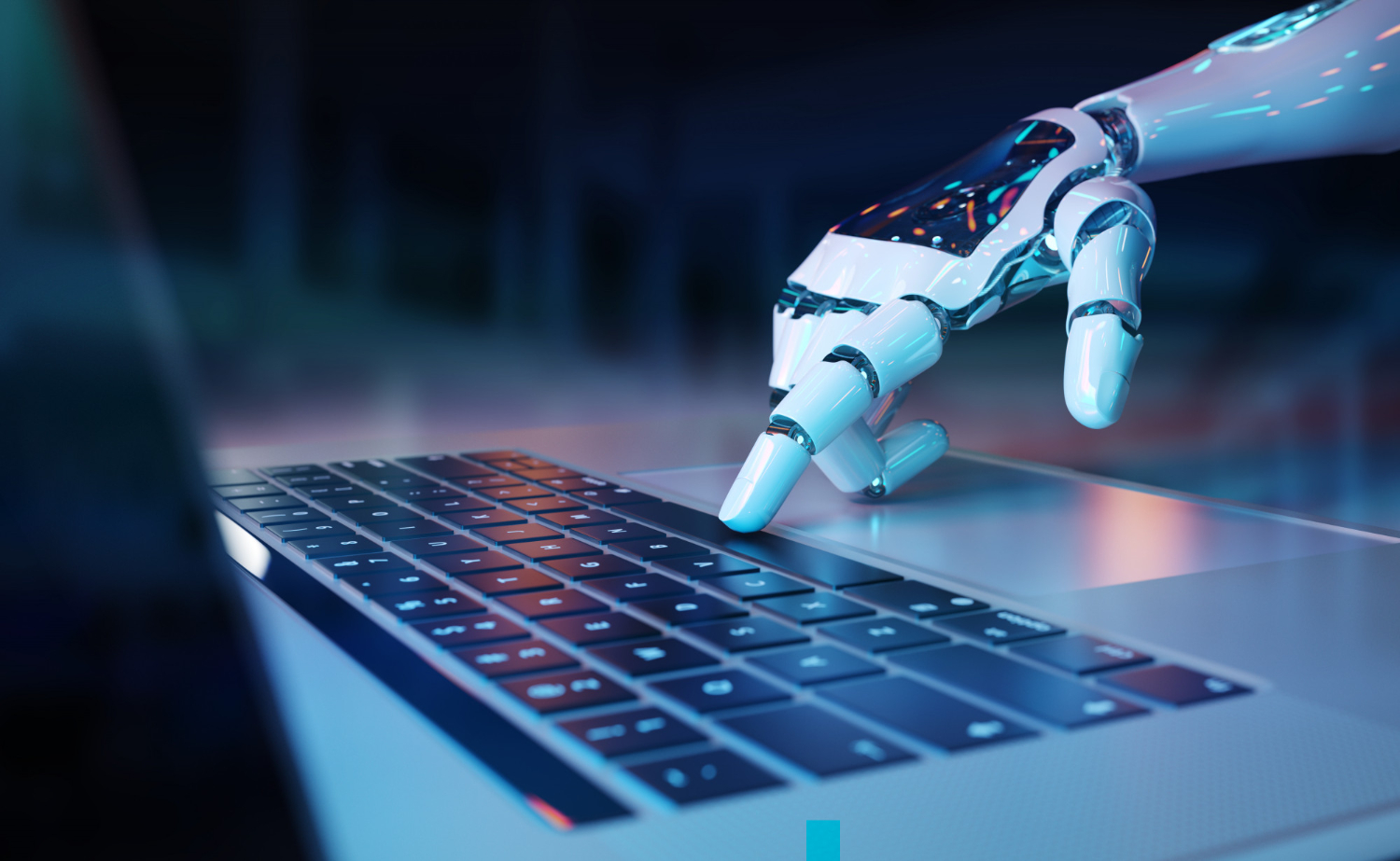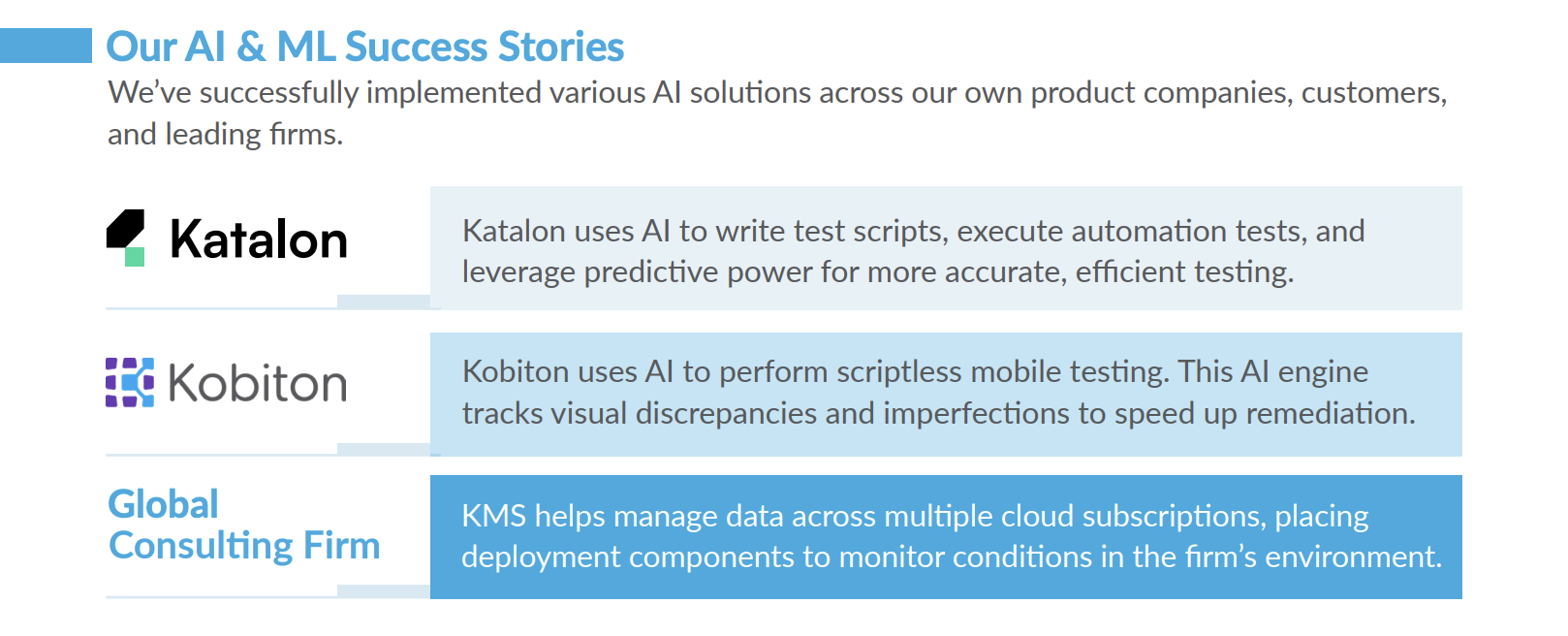How to Leverage Generative AI in Software Testing
Software testing is a crucial part of software development, ensuring that software is functional, reliable, and secure. However, traditional manual testing methods can be time-consuming, expensive, and prone to errors. With the advent of machine learning and generative artificial intelligence (AI), there is now an opportunity to revolutionize the way software testing is done.
In this blog post, we’ll explore how to leverage generative AI in software testing and examine the benefits that it can bring within the overall software development life cycle. Whether you’re a team of software engineers or a QA professional, this post will provide you with a comprehensive understanding of how generative AI can be used to enhance software testing and allow you to bring the highest quality software products to market.
What is Generative AI?
Generative AI is a type of artificial intelligence that has the ability to develop new content or outputs based on conventions it has learned from a given dataset. It can generate text, images, audio, and even video that have never been seen before.
There are multiple types of Generative AI models that use intricate neural networks to understand patterns and relationships in data and use that knowledge to generate new content. Unlike other types of AI, such as supervised or unsupervised learning, generative AI doesn’t require explicit instructions or guidance to produce its output.

Use Cases for Generative AI in Software Testing
According to GitLab, 37% of teams today are using AI/ML in software testing (up from 25% in 2021), and 20% plan to introduce it this year. That being said, it’s no secret that generative AI can be extremely useful in software testing in a number of ways, including:
- Generating Test Cases: One of the main benefits of generative AI in software testing is its ability to automatically generate new test cases. This can save time and effort for software testers, who would otherwise need to manually create test cases. Moreover, generative AI can create more comprehensive and diverse test cases that can help find bugs and edge cases that human testers might miss.
- Improving Test Coverage: Generative AI can help enhance test coverage by generating test cases that cover a wide range of scenarios and inputs. This ensures that the software being tested is thoroughly evaluated.
- Enhancing Quality Assurance: Quality assurance is an important step in the software testing process, ultimately ensuring that your software product is functioning properly. Generative AI can be used to simulate user interactions with the software, which can help identify potential issues with the user interface or user experience.
- Regression Testing: Generative AI can be used to automate regression testing, which involves testing changes made to the software to ensure that they do not introduce new bugs or issues.
- Predictive Maintenance: This technology can be used to predict potential issues or failures in the software before they occur. AI can help prevent downtime and ensure that the software is always functioning optimally.
More specifically, businesses are also turning to ChatGPT, one of today’s most common language models, for software testing. The right ChatGPT prompts can help in scenarios for test case generation, test scenario simulation, bug identification, and performance testing. A most common practice of ChatGPT within software testing is helping identify areas where software codes and scripts need optimization or helping with code verification.

Benefits of Artificial Intelligence in Software Product Testing
Generative AI offers a modern-day, digitalized approach to software testing that can significantly improve the testing process’s efficiency and effectiveness. By leveraging generative AI, software companies can reap various benefits, including:
Reduced Human Error: With generative AI, software testing can be automated, which ultimately helps reduce the risk of human error. Automated testing can run for extended periods without human intervention and will help detect bugs that might not have been caught with manual testing.
Saved Time and Costs: Automating software testing with generative AI can help save time and costs associated with manual testing. It lessens the need for large teams of testers, which can be particularly useful in cases where the software needs to be tested across multiple platforms, devices, and configurations.
Enhanced Security: Generative AI can be used to identify vulnerabilities and security risks in software. It can simulate different types of attacks and identify weaknesses in the software that could be exploited by malicious actors.
Improved User Experience: Generative AI can be used to simulate user interactions with the software, which can help identify potential issues with the user interface or user experience. This can help ensure that the software is user-friendly and easy to use, resulting in high satisfaction from your customers.
Key Applications of Software Testing Using Generative AI
Generative AI can be applied to different types of software testing in order to leverage automation, simulate different types of user interactions, identify potential issues, and improve the quality of the software being developed. Here are some examples of how generative AI can be applied to different types of software testing:
- Functional Testing: Generative AI can be used to automatically generate test cases that cover different aspects of the software’s functionality. For example, if the software is a messaging app, generative AI can be used to generate test cases that cover sending and receiving messages, adding contacts, creating groups, and so on. By automating functional testing with generative AI, software testers can identify bugs and issues more quickly.
- Performance Testing: Generative AI can be used to simulate different types of loads and user interactions to test the performance of the software. For example, if the software is an e-commerce platform, generative AI can be used to simulate different types of user interactions, such as adding products to a cart, checking out, and browsing different categories. By simulating these interactions, generative AI can help identify potential performance issues, such as slow page load times or server overload.
- Security Testing: With growing security concerns in the tech industry over the years, generative AI can help pinpoint security threats within a software product. For example, generative AI can be used to simulate different types of attacks, such as SQL injection, cross-site scripting, and brute force attacks. By identifying these risks, companies can act quickly to enhance security.
- User Experience Testing: Generative AI can test the user experience of a software product. For example, if the software is a mobile app, generative AI can be used to simulate different types of user interactions, such as swiping, tapping, and scrolling. By simulating these interactions, generative AI can help identify likely user experience issues, such as confusing navigation or difficult-to-use features.
Overall, generative AI can help software development teams save time and effort while delivering a better user experience to their customers. While there are various generative AI tools available for software testing, it’s important to keep in mind that these tools should be used as a supplement to traditional manual testing methods– the human eye goes a long way!
As with any tool, it’s essential to have a clear understanding of how generative AI works and how it can be integrated into the software development process. By leveraging generative AI in software testing, software development teams can take advantage of the benefits that this technology offers and stay ahead of the curve in an increasingly competitive marketplace.
Your Go-To AI Partner for Software Testing
Wondering if the implementation of generative AI is right for your business? KMS Technology offers various AI and machine learning services, including:
- Product AI road mapping
- Consulting on testing tools and technologies your business can use
- Implementation of software coding using AI
- Expertise in software development and testing with the use of AI
Let’s talk about your project today!








